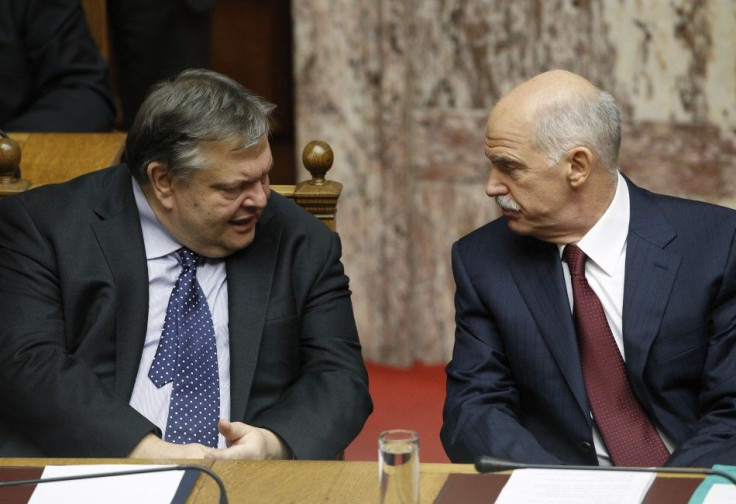Finance Minister Confident Greece Can Survive the Crisis

Evangelos Venizelos, the Greek finance minister, believes that is government will successfully apply the budget reforms demanded by its foreign creditors and emerge from the debt crisis.
After a difficult week, we now have a new political situation, a new political frame, in Greece, Venizelos told reporters prior to departing for a meeting of Eurozone finance ministers in Brussels.
We have a new government of national unity and national responsibility. This is the proof of our commitment and our national capacity to implement the program and reconstruct the country.”
European Union (EU) Monetary Affairs Commissioner Olli Rehn seemed to share Venizelos’ optimism.
My sense is that Greece will restore confidence for its European partners by building a coalition government of national unity, he said.
Over the weekend, Greek lawmakers agreed to form a temporary government that will have the responsibility of enforcing the strict terms of the latest 130 billion euro ($179 billion) bailout agreed by the EU and International Monetary Fund in Brussels last month.
Greek Prime Minister George Papandreou barely won a confidence vote on Friday which led to the government’s acceptance of the Eurozone bailout without having to put the measure to a popular vote through a referendum (as Papandreou earlier threatened).
However, as a concession to opposition parties, Papandreou of the ruling socialist Pasok party has agreed to step down – although it remains unclear who or what will lead the interim government.
Papandreou is reportedly meeting on Monday with principal opposition leader Antonis Samaras to discuss details of the new government.
Venizelos, a long-time rival of Papandreou, is believed to covet the job of Prime Minister.
Greece will hold new elections on February 2012
Meanwhile, attention is now turning to Italy and its huge debt problems. Prime Minister Silvio Berlusconi, whose government is hanging by a thread, will likely dominate the new summit meeting in Brussels.
An EU diplomat told the Irish Examiner: “Greece, which represents just a tiny fraction of Eurozone GDP, can be financed relatively easily. [However,] the fact is that Italy’s economy is so large that we like to think of it as too big to fail – but it might.
He added: “So much remains so uncertain, we are taking this one day at a time. The problem is that the clunky rigidity of the EU’s decision-making processes cannot adjust quickly enough to fast-changing circumstances.”
© Copyright IBTimes 2024. All rights reserved.











